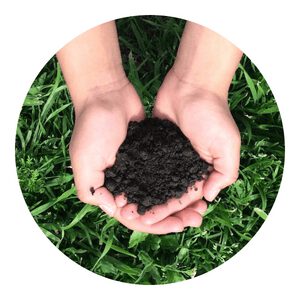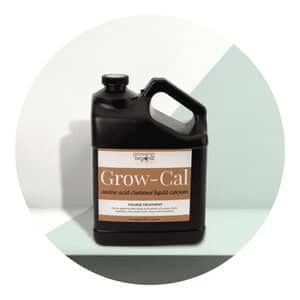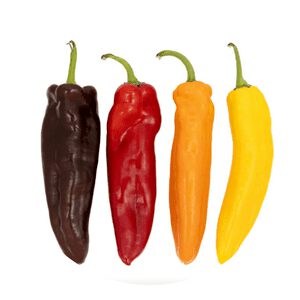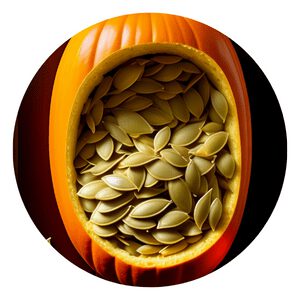Maximizing Vegetable Growth With Worm Casting Soil Amendment
Growing vegetables in your own garden is a rewarding experience.
Not only do you get the benefit of eating fresh, organic produce, but you also learn the basics of gardening and how to cultivate healthy soil.
Using worm casting soil amendments can help maximize vegetable growth by providing your plants with an abundance of essential nutrients.
Worm castings are created when worms digest organic matter and provide a natural fertilizer that is rich in beneficial microbes, nitrogen, and other necessary minerals for plant growth.
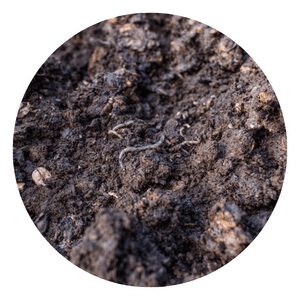
Worm Castings Menu
Worm castings
Worm castings are a natural soil amendment that can be used to maximize the growth of vegetable plants.
Worm castings are an organic material produced by earthworms when they consume and digest organic waste such as kitchen scraps and yard trimmings.
Through the process of digestion, these materials are broken down into a nutrient-rich material that is ideal for improving the quality of garden soil.
Worm casting soil amendments contain beneficial micro-organisms and provide an abundance of essential plant nutrients, including nitrogen, phosphorous, potassium, calcium, magnesium and iron.
When using worm castings in the garden or plot bed preparation, it is important to understand how best to work with this product in order to maximize its potential benefits.
Working them into the top several inches of soil will help ensure that they decompose properly while releasing their valuable nutrients into your soil.
Importance of worm castings for vegetable growth
Worm castings are an incredible soil amendment that can help maximize vegetable growth.
As organic matter, they provide essential nutrients to the soil and improve its structure, which helps promote healthy plant growth.
Worm castings contain a range of beneficial microbial organisms that help break down organic material into more readily available forms of energy for plants.
They also contain high concentrations of nitrogen, phosphorus, and potassium that are easily absorbed by vegetables’ roots.
Additionally, worm castings naturally suppress harmful pathogens in soil and decrease the risk of diseases as well as other pests attacking plants.
All these benefits make worm casting a great choice for boosting vegetable production without resorting to chemical fertilizers or pesticides.
Rise vegetables rise, beyond the grey and blues, Go past the sleepy skies, With worm castings to aid your move. Grow dense and green on high, For you will get what you need. Fill out that summer garden bed, Thanks to soil amendment of worm seed. Rise through the days in time, Soon you'll become sublime. Fill those planters that line your door, An evergreen vegetative splendor's what you've in store!
Chappy The Gardener
What are worm castings?
Worm castings are a natural way to improve the quality of your garden soil and boost vegetable growth.
Worm castings are created when earthworms digest organic matter, such as compost or kitchen waste.
As they eat, they produce nutrient-rich droppings known as vermicast, which is full of nitrogen, phosphorus and potassium – all essential elements for robust vegetable growth.
Using worm castings in your garden has numerous benefits over traditional chemical fertilizers.
Not only do they reduce the need for additional synthetic nutrients but they also help retain moisture in the soil and break up compacted dirt.
Moreover, worm castings contain beneficial microorganisms that increase root development and crop yields.
If you want to get the most out of your vegetables this growing season then consider using worm casting soil amendment to maximize growth potential.
How worm castings are produced
Worm castings are a natural and organic soil amendment that can benefit vegetable gardens in numerous ways.
Worm castings, also known as vermicast, are the result of earthworms consuming organic matter like kitchen scraps and decaying plant material.
The worms break down this material into a nutrient-rich soil conditioner produced through their digestive process which is then used to support healthy growth of vegetables.
Producing worm castings requires decomposing organic matter, moist bedding such as peat moss or shredded newspaper, and a colony of worms.
Once these items have been gathered together, they are placed in a container with oxygen supplied by drilling holes along the sides or top.
The ideal temperature for producing the most beneficial worm compost is between 55-77 degrees Fahrenheit.
Composition of worm castings
When used as a soil amendment, worm castings have the potential to improve plant yield by up to 20 percent.
The composition of worm casting is unique and complex.
It contains high levels of nutrients and beneficial microorganisms that help plants absorb more water and release more oxygen into the soil.
The nitrogen content of worm casting is particularly noteworthy; it helps to promote foliage growth and encourages vigorous root development in vegetables.
Worm castings also contain small amounts of humic acid, which helps reduce soil salinity and creates better drainage for garden beds.
By understanding the composition of worm castings, you can maximize the benefits they offer to your vegetable garden.
Benefits of worm castings for vegetable growth
Worm castings are an excellent soil amendment for vegetable gardens, as they providing essential nutrients to the plants grown in them.
Worm castings contain vast amounts of beneficial organisms, including bacteria and fungi, which work together to create a healthy environment for plant growth.
These helpful organisms help break down organic matter into forms that can be easily absorbed by plants and provide nitrogen, phosphorous and other macronutrients necessary for maximum vegetable growth.
Improved soil structure
Improved soil structure is a key component of maximizing vegetable growth.
By incorporating worm casting soil amendment into your garden, you can improve the overall quality of the soil and create an ideal environment for your vegetables to thrive.
Worm casting soil amendment is a natural organic fertilizer that comes from composting worms. It is rich in nutrients and beneficial bacteria, creating an optimal nutrient cycling system in the garden’s soil.
The amendment helps to break up hard compacted soils, providing better drainage and aeration for roots to grow more efficiently.
It also increases water retention by slowly releasing moisture as needed, reducing the amount of time between watering cycles.
Additionally, it contains humates which help increase microbial activity in the soil and improve root development, resulting in healthier plants with increased yields.
Increased nutrient availability
Vegetables are an essential part of a balanced and nutritious diet, providing many vitamins, minerals and other nutrients to help keep us healthy.
But without the right soil conditions, your vegetables may not develop their full potential.
One of the best ways to maximize vegetable growth is by adding worm castings as a soil amendment.
Worm castings contain high levels of available nutrients that can improve soil fertility, water retention and microbial activity – all important factors for successful vegetable production.
Worm castings are composed of partially digested organic matter from earthworms’ digestive systems.
This makes them rich in beneficial bacteria and fungi which break down organic matter in the soil into more readily available forms like nitrates and phosphates.
Enhanced soil fertility
Enhanced soil fertility is the key to maximizing vegetable growth.
By implementing worm casting soil amendment, gardeners can significantly improve the health and vitality of their vegetables.
Worm castings are nutrient-rich organic matter that can be added directly to the soil as a natural fertilizer.
The benefits of worm castings are numerous and include increased water retention, improved drainage, increased microbial activity in the soil, deeper root penetration, and higher nitrogen content.
This makes it ideal for growing healthy vegetables that are packed with flavor and nutrition.
Additionally, it helps protect plants from damage caused by extreme temperatures or drought conditions by providing an additional layer of insulation around their roots.
Furthermore, its low pH level prevents weeds from taking over gardens while its slow release properties provide long-term nourishment for vegetable crops throughout the season.
Stimulation of plant growth
Plants need the right environment, soil and nutrition to grow optimally.
One way to maximize vegetable growth is through the use of worm casting soil amendment.
Worm castings are a natural fertilizer created by earthworms as they digest organic matter in the soil.
This process creates rich nutrients that plants can absorb for optimal growth.
Worm castings have been proven to stimulate plant growth due to their high nutrient content.
They contain nitrogen, phosphorus and potassium, which are essential elements for healthy plant development.
In addition, worm castings provide beneficial microbes that help increase the availability of key nutrients for plants.
Furthermore, worms also produce other compounds such as humic acids which act as a buffer against pH extremes in soils and release trace elements from minerals that may be unavailable in regular soils.
How to apply worm castings to vegetable garden
Applying worm castings to a vegetable garden can provide numerous benefits for the health and growth of the plants.
Here is a step-by-step guide on how to apply worm castings to your vegetable garden:
Prepare the soil: Start by clearing the area of any weeds or debris and breaking up any clumps of soil.
This will ensure that the worm castings are evenly distributed throughout the soil.
Add worm castings: Spread a thin layer of worm castings over the soil surface.
The amount will depend on the size of your garden and the type of plants you are growing, but a general guideline is to use about 1 inch of worm castings per square foot of soil.
Mix the worm castings into the soil: Use a garden fork or trowel to mix the worm castings into the top 6 to 8 inches of soil.
This will ensure that the nutrients from the worm castings are well incorporated into the soil.
Water the soil: After you have mixed in the worm castings, water the soil thoroughly.
This will help activate the beneficial microorganisms in the worm castings and distribute the nutrients more evenly throughout the soil.
Mulch the soil: To help retain moisture and reduce weed growth, spread a layer of mulch over the soil.
This will also help protect the worm castings from being washed away by heavy rain or watering.
It is important to note that worm castings can be used as a soil amendment or fertilizer, but should not replace regular watering and maintenance of your vegetable garden.
It is also recommended to test the soil regularly and adjust the application of worm castings based on the results to ensure optimal growth of your vegetable plants.
Tips for successful application
To ensure the most successful application of worm castings to your vegetable garden, here are some tips to keep in mind:
Choose high-quality worm castings: Look for worm castings that are rich in color, have a pleasant earthy smell, and are free of any contaminants such as sticks, leaves, or other debris.
Apply at the right time: It is best to apply worm castings in the spring before planting or in the fall for winter crops.
This will give the plants the best chance to absorb the nutrients from the worm castings as they grow.
Use the appropriate amount: Too much worm castings can cause an excess of nitrogen in the soil, which can lead to stunted plant growth.
On the other hand, not using enough worm castings will not provide the full benefits of using them.
As a general guideline, use about 1 inch of worm castings per square foot of soil.
Incorporate well into the soil: To ensure the worm castings are well incorporated into the soil and easily accessible to the plants, mix them into the top 6 to 8 inches of soil.
Follow up with mulch: To retain moisture and reduce weed growth, spread a layer of mulch over the soil after applying the worm castings.
This will also help protect the worm castings from being washed away by heavy rain or watering.
Monitor soil pH levels: Regularly testing the soil pH levels can help you determine if the worm castings are affecting the soil in any negative way.
If needed, adjust the application of worm castings to achieve the optimal pH level for your specific plants.
By following these tips, you can help ensure that the application of worm castings to your vegetable garden is successful and leads to healthy, thriving plants.
Maximizing vegetable growth with worm castings
Worm castings are a natural soil amendment made from the composted excrement of earthworms.
They are a rich source of nutrients, beneficial microorganisms, and humus, all of which can help maximize vegetable growth in the garden.
Here are some tips for maximizing vegetable growth with worm castings:
Apply worm castings at the right time: The best time to apply worm castings is in the spring before planting or in the fall after harvesting.
This allows the worm castings to be well incorporated into the soil and provides the plants with a steady supply of nutrients throughout the growing season.
Use the right amount of worm castings: The amount of worm castings to use will depend on the size of your garden and the type of plants you are growing.
A general guideline is to use 1 inch of worm castings per square foot of soil.
Mix the worm castings into the soil: Mix the worm castings into the top 6 to 8 inches of soil in your garden to ensure that the nutrients and beneficial microorganisms are well distributed throughout the soil.
Water the soil: After applying the worm castings, water the soil thoroughly.
This will help activate the beneficial microorganisms in the worm castings and distribute the nutrients more evenly throughout the soil.
Avoid over-applying worm castings: While worm castings are a natural and beneficial soil amendment, too much of a good thing can be harmful.
Over-applying worm castings can lead to an imbalance of nutrients in the soil, causing problems for your plants.
By using worm castings in your vegetable garden, you can provide your plants with the optimal growing conditions for healthy growth and a bountiful harvest.
Regular monitoring of the soil and adjusting the application of worm castings as needed can help ensure that you are getting the best results from using this natural soil amendment.
Best vegetables to grow with worm castings
Worm castings can provide numerous benefits for the growth and health of a wide variety of vegetables.
Here are some of the best vegetables to grow with worm castings:
Tomatoes: Tomatoes are heavy feeders and benefit greatly from the increased nutrient availability and soil fertility provided by worm castings.
Peppers: Peppers also thrive in soil amended with worm castings, especially in warm climates where they are often grown.
Cucumbers: Cucumbers grow well in soil that is rich in nutrients and moisture, both of which are improved by worm castings.
Squash: Squash plants benefit from the improved soil structure and fertility provided by worm castings, leading to larger, healthier plants and a more abundant harvest.
Carrots: Carrots grow best in well-draining soil that is rich in nutrients, both of which are improved by worm castings.
Salad greens: Salad greens such as lettuce and spinach grow well in soil amended with worm castings, producing more flavorful and nutrient-dense leaves.
Beans: Beans are heavy feeders and benefit from the increased nutrient availability and soil fertility provided by worm castings, resulting in larger, more abundant harvests.
These are just a few examples of the many vegetables that can benefit from being grown in soil amended with worm castings.
By using worm castings in your vegetable garden, you can help ensure that your plants have the optimal growing conditions for healthy growth and a bountiful harvest.
Using worm castings in raised beds
Worm castings can be a great addition to raised garden beds, providing numerous benefits for the growth and health of the plants.
Here are some tips for using worm castings in raised beds:
Prepare the soil: Start by removing any weeds or debris from the raised bed and breaking up any clumps of soil.
This will ensure that the worm castings are evenly distributed throughout the soil.
Add worm castings: Spread a thin layer of worm castings over the soil surface in the raised bed.
The amount will depend on the size of the raised bed and the type of plants you are growing, but a general guideline is to use about 1 inch of worm castings per square foot of soil.
Mix the worm castings into the soil: Use a garden fork or trowel to mix the worm castings into the top 6 to 8 inches of soil in the raised bed.
This will help ensure that the nutrients from the worm castings are well incorporated into the soil.
Water the soil: After you have mixed in the worm castings, water the soil thoroughly.
This will help activate the beneficial microorganisms in the worm castings and distribute the nutrients more evenly throughout the soil.
Mulch the soil: To help retain moisture and reduce weed growth, spread a layer of mulch over the soil in the raised bed.
This will also help protect the worm castings from being washed away by heavy rain or watering.
Using worm castings in raised beds can help improve the soil structure and fertility, leading to healthier and more abundant plant growth.
It is important to monitor the soil regularly and adjust the application of worm castings based on the results to ensure optimal growth of your plants.
In conclusion, the use of worm castings as a soil amendment is an effective way to maximize vegetable growth.
It provides essential nutrients, improves soil structure and fertility, and helps retain moisture in the soil.
Not only does it benefit vegetables, but it also promotes a healthier, more sustainable environment by reducing the need for chemical fertilizers and pesticides.
Finally, the use of worm castings is easy to incorporate into gardening practices and offers many benefits to both plants and gardeners.
Click To Grow
Helps Us Grow – Share If You Like






